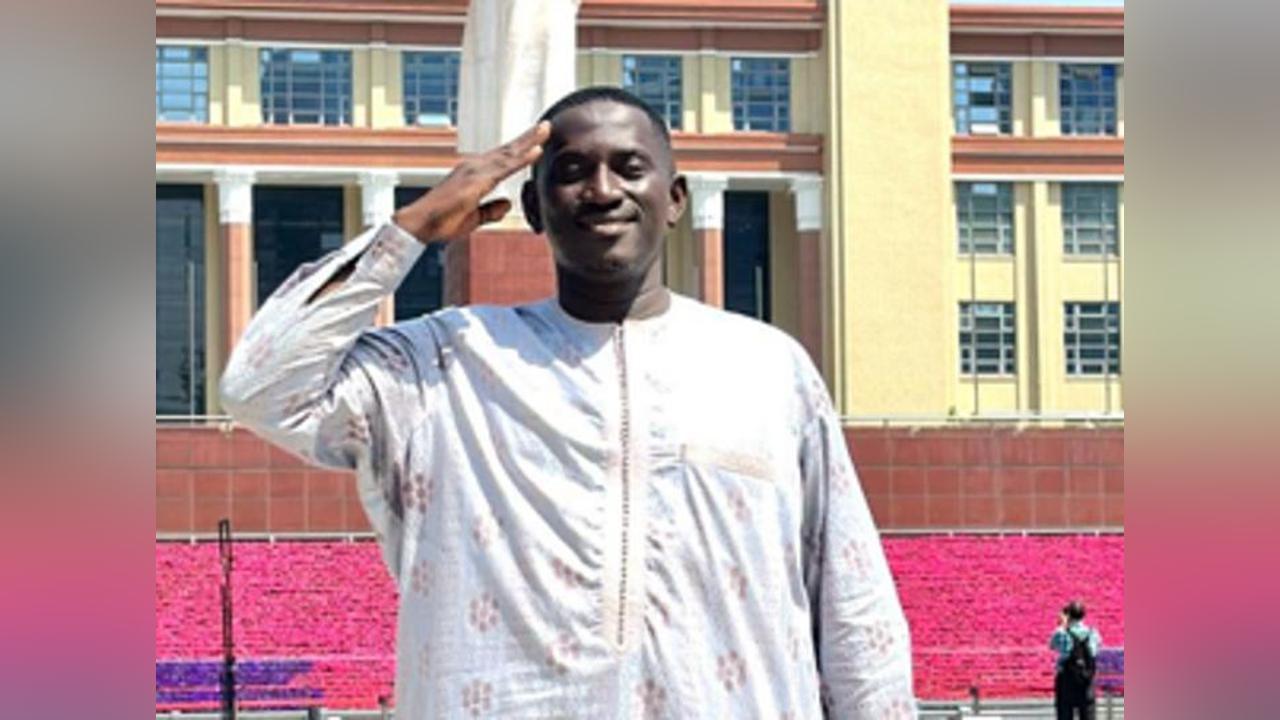Africa-Press – Gambia. It is a warm Monday afternoon in Beijing on the 14th day of April 2025, as I wait at the airport here, ready to fly to another region of China to visit the city of Chengdu in pursuit of the more recondite aspects of my mission here.
I have a long wait before my flight, Air China (TV 9956), takes off; hence, I am playing the Kora narrative series again.
This time, Jali Alhagie Mbaye narrates the background to the composition of the all-time classic tune with deep Republican significance, “Foday Kaba”.
But, hey, I can imagine you feeling overwhelmed by now wondering why I would be boring you with endless essays about old songs. Yes. You may be right if you feel overwhelmed by these perennial missives but I do this for a reason. Our folklore remains mainly unwritten and I do have a special respect for our traditional music and songs.
It is my conviction that our songs, in their essence, hold the rich tapestry of our culture, and they serve as that ultimate reservoir of our heritage, preserving it for posterity.
Now, back to the subject of today’s missive. The Warrior Foday Kaba Dumbuya, who was blessed by the prayers of the famous Niani saint, Simmoto Kemo, was the one from whom this tune was composed.
The legendary Foday Kaba is said to be resting in the village of Madina Foday Kaba in Cassamance. According to the Jali, Foday Kaba’s relocation to that village in Cassamance was one of the outcomes of the famous battle of Sankandi when my favorite ‘saws’ from Kiang killed a serving colonial Commissioner. What a story! But that’s a story we must leave for another day.
My good friend, of course, you know that it is this tune that was adapted for the creation of our national prayer, “For The Gambia Our Homeland.” But do you know the original composer of this relic and why he came up with this song?
The Jali tells us that this song was originally composed by Jali Mori Suso, who begot Jali Banku Suso. This Banku Suso is the father of the famous Bakau griot Jali Nyama Suso.
It was Jali Nyama Suso who performed this tune when it was being adopted to become the soundtrack for our National Anthem, and the rest, as they say, is history.
Sheriff, I have since flown into Chengdu City in Sichuan Province with its amazing landmarks and historic sights. During my stay here, I shall visit an oil processing plant with an annual revenue of more than $400 million and a car manufacturing plant in the City of Yibin.
These few days have now taken me to Mount Qingcheng, where I have seen their age-old Taoist temples and then visited a park that is home to some giant pandas.
Now as I wrap up my visit here, I walked past a grand statue of the founding father of this great Republic. I had to stop to take a picture here in downtown Chengdu.
In this epistle that focuses on the song composed for a great man, Foday Kaba, I pay my respect to yet another great soul whose impact on his people has had a far-reaching effect echoing all over the world with the inexorable rise of the People’s Republic of China.
To this man then, I raise my cup of cheer as I listen to another kora classic serenading the legendary Warrior Abdou Njie.
And hey, I just heard the Jali mention that this song, famous for “Abdou Njie: a li Mansa maanaynay,” was initially composed by Bunka Jali to honour the King of Niumi, Mansa Burungai Sonko.
With all of these legendary African regents in mind, I salute this legend standing right here in Chengdu:
“Respect the legend of Chairman Mao Zedong, 1st chairman of the Chinese Communist Party and founder of the People’s Republic of China.” The man whose ideas, vision, and tenacity gave birth to this Nation that I call Amazing China!
Let me halt this one here then, my good friend, and bid you goodbye.
M Sabally
The Gambia’s Pen
Author, Economist, Presidential Adviser, Deputy National Campaign Manager for the ruling NPP
Source: The Standard Newspaper | Gambia
For More News And Analysis About Gambia Follow Africa-Press






